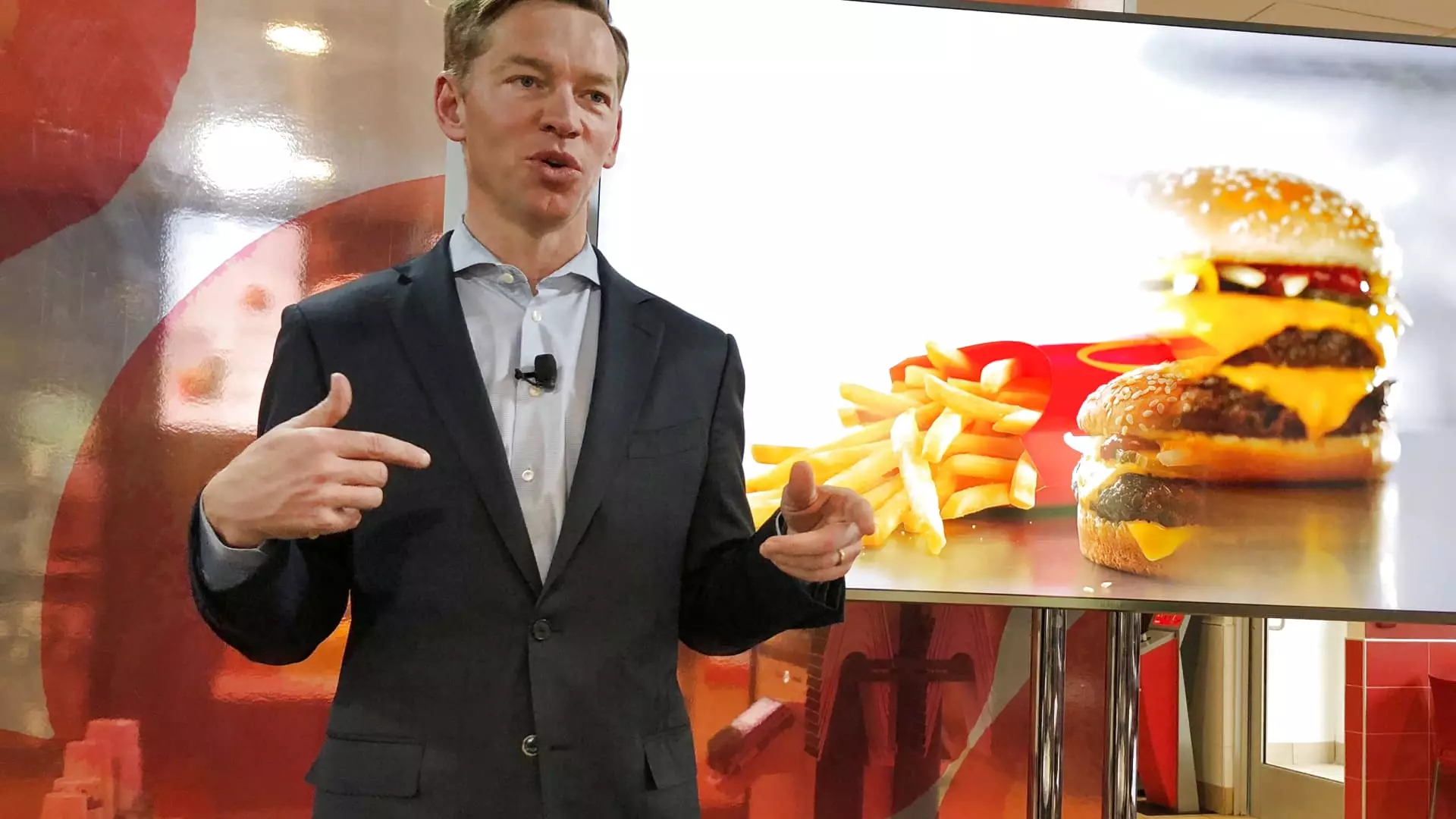The fast-food industry, often criticized for its rapid service and nutritional value, has recently faced a significant challenge with the public health scare surrounding E. coli linked to McDonald’s Quarter Pounder burgers. Chris Kempczinski, the CEO of McDonald’s, has expressed optimism about moving past the crisis. However, the events raise important questions about food safety, corporate accountability, and customer trust in a brand that has historically dominated the fast-food landscape.
Understanding the Crisis
The outbreak, which has affected 75 individuals across 13 states and resulted in one reported death, has understandably caused alarm among consumers. In an environment where swift communication is critical, the response from health authorities was aimed at minimizing panic while ensuring public safety. McDonald’s took immediate action by halting the sale of Quarter Pounders—a key menu item—across numerous locations. This drastic measure highlights the company’s commitment to customer safety but also emphasizes the severity of the situation.
As the investigation unfolded, health authorities pointed the finger at the slivered onions used in the burgers, rather than the beef patties themselves, which were cleared of contamination. This revelation underscores the complexities of food supply chains; ingredients sourced from multiple suppliers can often lead to widespread consequences impacting not just one product but an entire menu.
Kempczinski communicated to investors that the worst appears over, indicating confidence in the company’s recovery strategy. However, the reality on ground is more nuanced. After the outbreak announcement, there was a notable dip in sales and customer traffic which placed immediate pressure on McDonald’s already competitive positioning in the fast-food market. The CFO, Ian Borden, noted that while they aim to rekindle the sales momentum seen prior to the incident, the brand must first focus on restoring consumer trust.
In the days ahead, McDonald’s is faced with the dual challenge of remediating the effects of the crisis while also positioning itself to capitalize on earlier successes prompted by promotions like the $5 value meal and the debut of the Chicken Big Mac. It remains essential for the brand to rebalance its marketing efforts, steering away from the fallout of the outbreak while re-engaging with loyal customers.
Financial performances provide an additional perspective on the outbreak’s impact. During the call, McDonald’s reported a marginal increase of 0.3% in U.S. same-store sales, albeit slightly below market expectations. This statistic indicates that while there is slight recovery, the impact of the outbreak lingers, bringing forth skepticism among consumers about their previous dining habits.
Furthermore, the decline in international markets illustrates the wider ramifications of health-related issues on global operations. The drop in total same-store sales by 1.5% punctuates a need for renewed strategic focus, particularly in maintaining international customer loyalty.
Kempczinski’s public apologies and his acknowledgment of the pain caused to patrons symbolize the necessity of corporate responsibility, especially during a health crisis. Apologies can go a long way in fostering goodwill; however, they must be backed by tangible actions. McDonald’s has made a commitment to address the uncovering issues within their supply chain, halting sourcing from the implicated onion supplier and serving Quarter Pounders without onions at many locations.
Lawsuits from affected customers also introduce a complex layer to the fallout. As McDonald’s navigates legal repercussions, the company’s agility in addressing customer concerns and remedying the situation could either fortify its reputation post-crisis or further tarnish trust.
Looking Ahead
The E. coli outbreak linked to McDonald’s serves as a wake-up call to not only the fast-food chain but to the entire food service industry. Increased vigilance and transparency are paramount moving forward. As the brand strives to heal consumer sentiment, it must prioritize both immediate recovery tactics and long-term strategic adjustments, ensuring that safety and quality remain at the forefront of its operations. The path to restoration is fraught with challenges, but with resolute action, McDonald’s can emerge from this crisis stronger and more resilient than before.


Leave a Reply